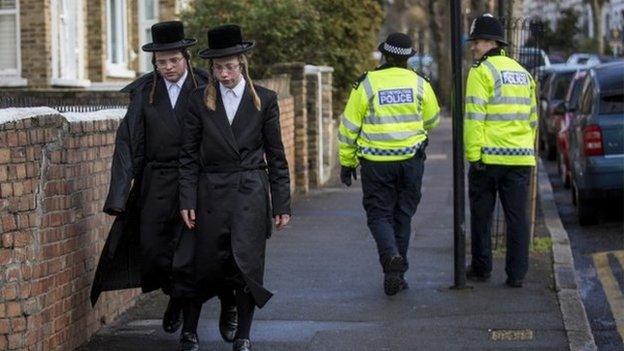How to reverse surge in religious hate crime?
- Published
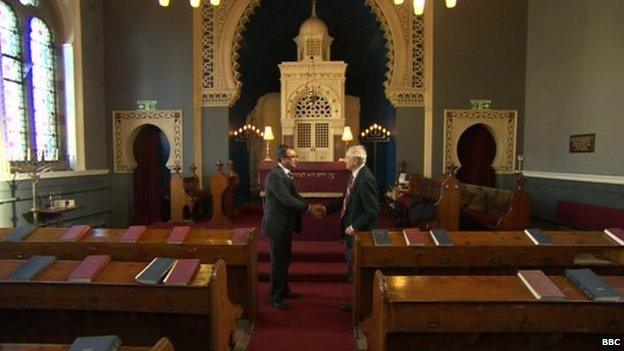
Jani Rashid has been appointed to the ruling body of a synagogue in Bradford
Last week there was a report, external in the French press that an Israeli salon was marketing a discreet hair-based kippa - the small cap worn as a visible symbol of Jewish faith - to European Jews who don't want to be that visible any more.
It is the kind of story that feels like it's a sign of the times in the wake of the Paris attacks and heightened concern among British security chiefs for the safety of Jewish communities here.
In the UK, all the statistics for religiously motivated hate crime have been moving in the wrong direction.
Last week's figures from the Community Security Trust, an expert body monitoring anti-Semitism in the UK, make grim and record-breaking reading.
Anti-Semitic incidents more than doubled to 1,168 in 2014, the highest figure since the trust began monitoring in 1984. The previous year had been the lowest on record.
There were 314 incidents in July alone - the highest recorded in a single month.
Hate crime tends to be driven by "trigger" events - and last summer's trigger for anti-Semitism was the conflict in Gaza.
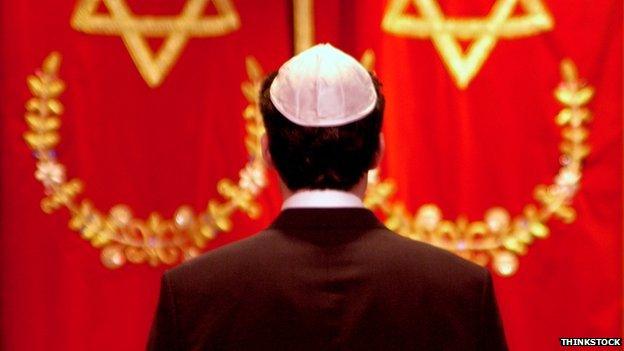
Violence in Gaza appears to have fuelled anti-Jewish sentiment in the UK
The CST said that almost half of the offenders made reference to Gaza or Palestinians during the incidents it recorded in July and August.
It can be really difficult to identify the perpetrator. In those incidents where the victim could do so, the CST figures, external reveal a number of perpetrators of either a South Asian, Arab or North African appearance.
Muslim tensions
Decades ago, the British extreme far right and fascism were the forces behind anti-Semitism.
But on the face of it, the figures are now pointing to widespread anti-Jewish feelings among some Muslims in Britain.
This analysis is shared by many leading progressive Muslim thinkers.
But what these thinkers also point out is that the rise in attacks against Britain's Jews mirrors the trend for Muslims themselves - and the two communities need to make common cause.
Police recorded 44,500 hate crimes in England and Wales during 2013-14. That was up 5% on the previous year across race, religion, sexual orientation, disability and transgender - the five key measures that feature in national figures.
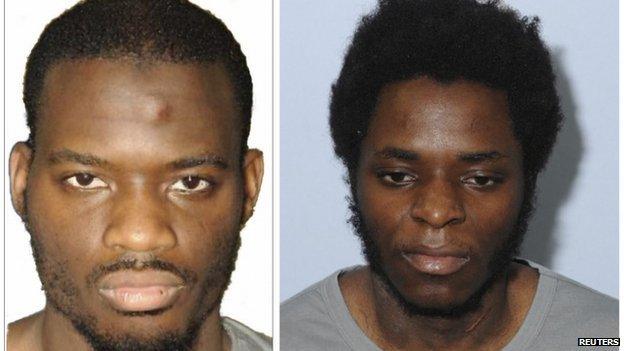
The killers of Lee Rigby: anti-Muslim attacks have since risen
Some of that rise has been attributed to better reporting of existing levels of hate.
But a further breakdown indicates there was a 45% jump in religiously motivated incidents to 2,300 - and that appears to have been largely down to more anti-Muslim incidents following the jihadist murder of Fusilier Lee Rigby in Woolwich.
In London, the home of the largest numbers of British Jews and Muslims, police recorded 358 anti-Semitic crimes in 2014 and 611 anti-Muslim crimes.
While the trigger for anti-Semitism comes down to haters blaming Britain's Jews for something they don't like about Israel, the mirror trigger for anti-Muslim crimes is yet another group of haters blaming Muslims for things that al-Qaeda inspired extremists have done.
So how do you go about tackling this stuff?
Social media
The All-Party Parliamentary Group on Anti-Semitism's (APPG) latest report calls for internet "Asbos" to ban them from using social media to spread hate.
It also wants the government to fund the security of synagogues and to review what's being done to improve interfaith relations.
What will come of the first two remains to be seen - but on the interfaith issue, there is some hope.
Tell Mama is a Muslim hate crime initiative that is closely modelled on the Community Security Trust and is backing the APPG's calls for social media Asbos because, quite simply, both communities are victims of hate crime.
It wants more British Muslims to recognise and speak out about anti-Semitism because it is morally objectionable to suggest that one form of hate crime is worse than another.
That view is shared by a host of individuals and small unnoticed organisations that work hard to improve understandings between the two faiths.
A fortnight ago, two leading progressive British Muslims, Sughra Ahmed of the Islamic Society of Britain and Dilwar Hussain of New Horizons in British Islam, spoke eloquently in a north London synagogue about the sorrow and pain they felt over Paris.
And - who'd have thought it - a synagogue in Bradford has even appointed, external a Muslim to its ruling body.
- Published3 February 2015
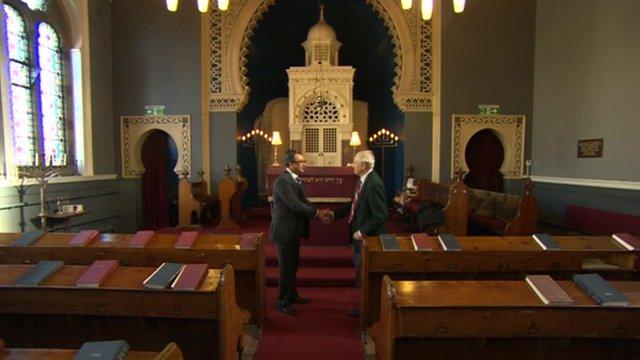
- Published9 February 2015
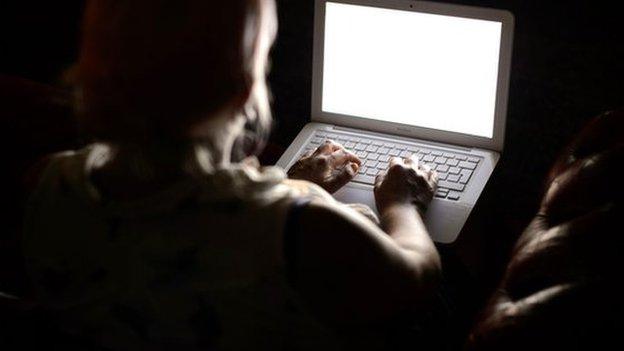
- Published5 February 2015
